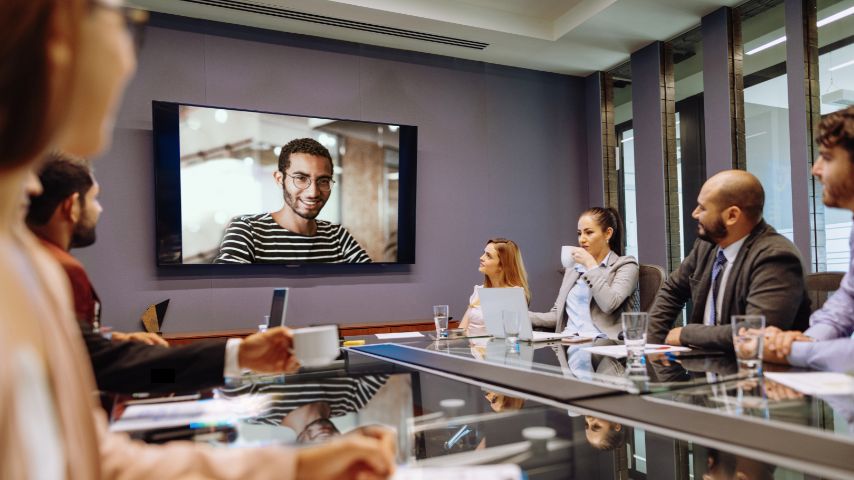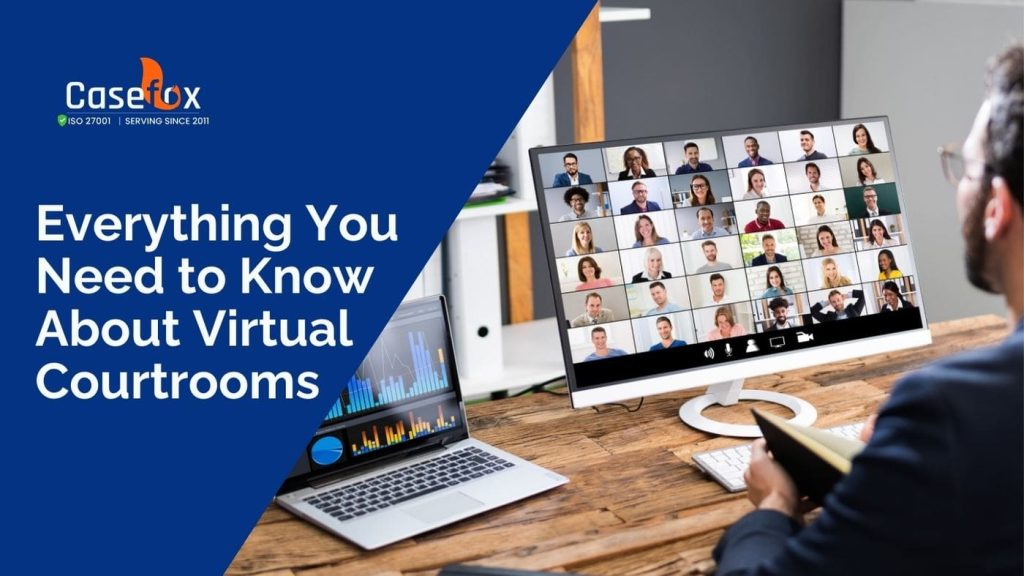Do you know there’s something called a virtual courtroom and online court hearing? Yes, that’s true. It can be a very new and unique concept for many lawyers, legal professionals, and law firms. But traditional court hearings are getting a little makeover with the concept of virtual courtrooms and legal proceedings. If you are wondering how virtual courts work, this is the blog for you. Further in the blog, we will be explaining everything that you need to know about virtual courtrooms.
What are Virtual Courtrooms?
A virtual courtroom is an online legal proceeding that requires a judge, such as a court hearing or trial, to conduct remote hearings when one or more participants appear remotely. Virtual courtrooms were very much in back in the pandemic days. Trials were conducted online with all the jury members taking part virtually. But even after the pandemic, many courts have still kept the option of virtual courtroom and online court hearings.
Benefits of Virtual Courtroom
Virtual courtroom proceedings have various benefits. Even after the pandemic, virtual courtroom proceedings are relevant and helpful for lawyers and courts.
Time and cost savings for legal professionals

Remote court hearings are time and cost-saving for both legal professionals and the court. Time that goes into traveling and logistics is reduced and additionally, it also eliminates the cost that is associated with it. For remote court hearings, lawyers only require a secure internet connection, reliable technology, and a quiet place for conducting a court hearing.
Enhance security and confidentiality
Virtual court proceedings can enhance the security and confidentiality of legal proceedings. But unlike traditional courtrooms, they are closed to the public. Virtual courts are a reliable option for matters such as domestic violence cases, remote court appearances, and issues that are related to litigation matters. It can address legitimate safety concerns for participants.
Improved accessibility of the judicial system
Accessibility is an issue in many cases, especially when an attorney is living in a different area or even a different state. With virtual courts, it becomes easy to be a part of hearing, even when living in a different state or location. Virtual courtroom technology makes the legal system more accessible for both lawyers and clients. Online hearings decrease, failing to appear for non-attorneys. This will allow attorneys to effectively practice in different geographic areas.
Logistical benefits for courts
Online court hearings can automate many processes that are involved in court hearings. Virtual courtrooms can save time, effort, and labor for court staff that are already busy enough. As a legal professional, it will also save your time as you will also have to deal with these court staff every day.
Logistics plays a vital role in organizing remote court hearings by ensuring that technology and resources are effectively managed. Utilizing innovative logistics management tools can significantly enhance operational efficiency. These tools support the planning, monitoring, and managing of essential elements such as secure internet connections, reliable software platforms, and streamlined processes for document sharing and electronic filing. By implementing these innovative solutions, legal professionals can focus more on case preparation rather than technical details.
Top Virtual Courtroom Technology
For running a successful courtroom hearing, it is important to have the following courtroom technology. These tools can make remote hearings more successful.
Video conferencing
Video conferencing is the most important part of online courtroom hearings. Some of the popular platforms that can be reliable and helpful for video conferencing are Zoom, Google Meet, and Microsoft Teams. All these platforms have features that are necessary for accomplishing most of the basic tasks required for remote hearings.

Beyond offering a reliable video feed, it also provides a high-quality video conferencing tool.
For example, these tools can provide captions and interpretation features that can help those with hearing impairments or language barriers.
Document sharing and electronic filing
Court proceedings require the sharing of documents in real-time, especially during trials. Document sharing is required for witnesses who are either authenticating documents or undergoing examination of those documents. Virtual court technology should include capabilities such as screen sharing or sending links.
Transcription and recording
Every crucial court proceeding requires transcription by a court reporter and virtual courtroom is no exception. With virtual technology, it becomes easy to record videos, and no additional court reporter is required for recording and transcription. They can also have video backups of the court transcripts.
Best Practices of Virtual Court Proceedings
While online court proceedings, there are few best practices that you need to follow, such as:
Understand how virtual court hearings work
It is important to understand how legal proceedings and video conferencing works. Prior to the virtual court, hearing attorneys receive a phone number or link to access the hearing. To be part of the court, hearing lawyers will require a reliable and stable internet connection. Not just that, they will also require a video conferencing platform.
Prepare for your virtual court appearance
Make sure you are prepared for your virtual court appearance in advance. Review your local court’s website and understand the process of court hearings. Also, check the participants who will be taking part in the hearing remotely. Be prepared in advance. This will help in minimizing the risk of unexpected surprises.

Use effective communication and practice proper etiquette
Don’t just go into the legal hearing without knowing about the proper etiquette. Use effective ways of communication while you are in an online legal proceeding. Avoid being too casual. For example, if you have any hand motions that accentuate your comments, you should make those visible on the screen. Make sure you are not talking over other participants and make sure no one is making additional comments and noises that can distract the communication.
Manage technical challenges and handle troubleshooting
While you can prepare as much as you can before the video conference, still there is a slight chance of something unexpected happening, like technical glitches. So it is important to be equipped with the technology. You need to learn basic troubleshooting or how to avoid it, or else it can create a virtual court appearance.
The Bottom Line
Virtual courtroom offers flexibility, and it improves the efficiency of legal proceedings. If you want to take your law firm online, you can use legal practice management software. It will help you take your legal practice online. You will be better equipped for a virtual courtroom by having legal practice management software like CaseFox by your side.

